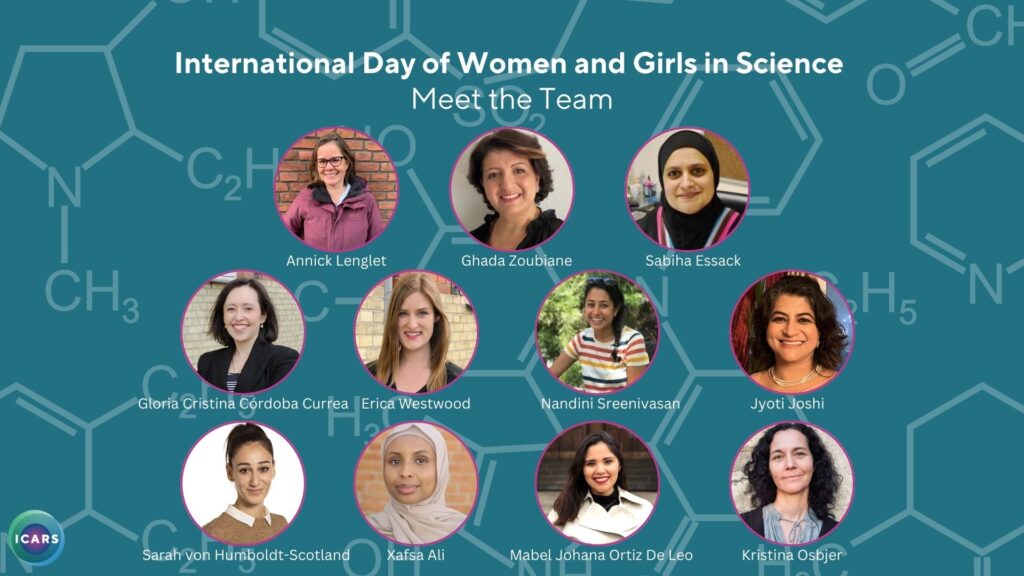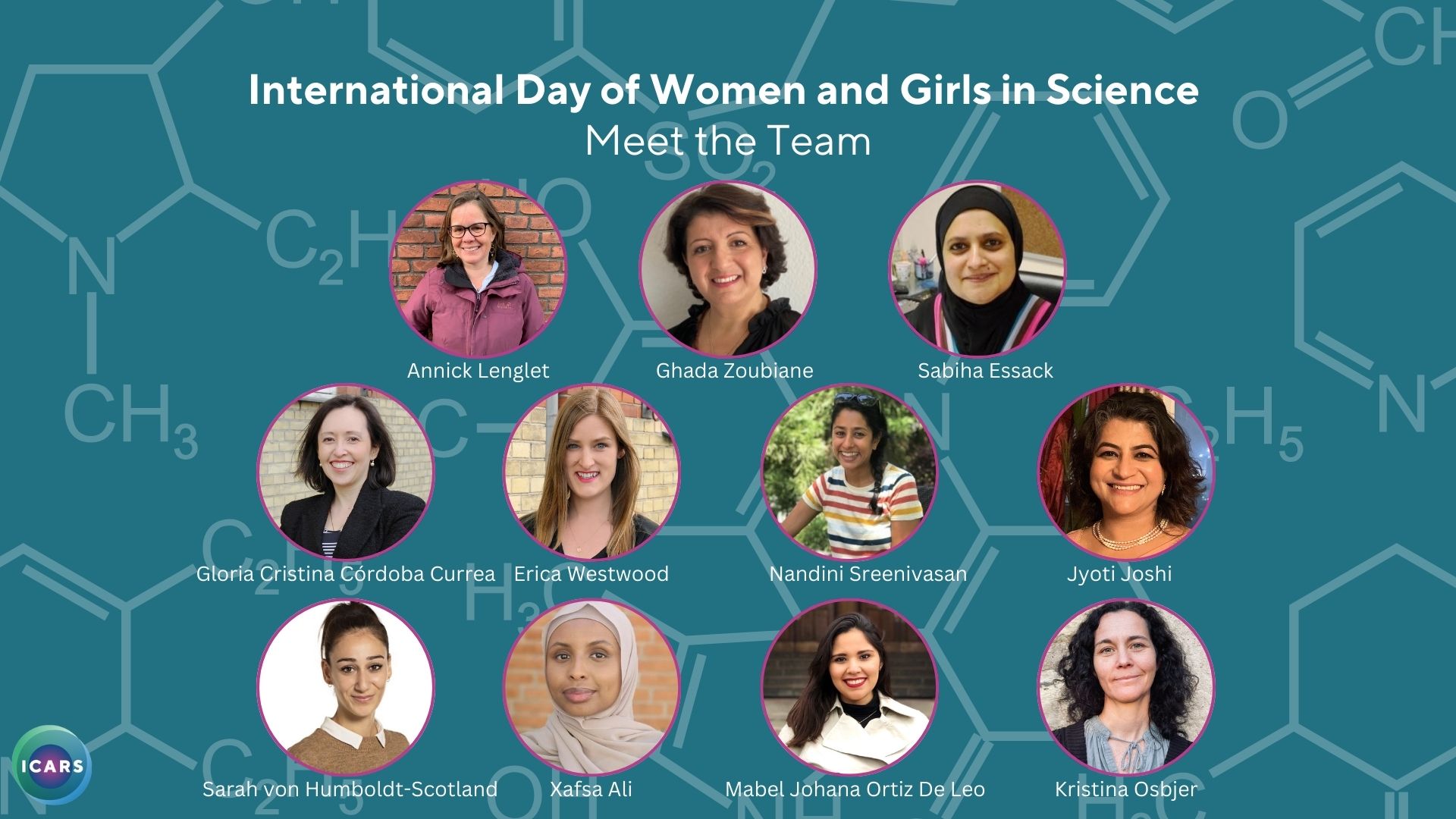February 11th marks the International Day of Women and Girls in Science, a day dedicated to celebrating the contributions of talented female researchers and scientists worldwide. While honouring their achievements, it is also a reminder of the persistent challenges women face in the scientific community.

Persistent challenges
Despite advancements, women continue to encounter barriers in accessing opportunities and resources within the field of science. According to the United Nations’ data, only 33% of researchers globally are female, highlighting a significant gender gap. This inequality extends to funding, with female researchers receiving fewer grants for their work compared to their male counterparts. The obstacles faced by women in science are further compounded by difficulties in career advancement and recognition. Female researchers often experience shorter and less well-compensated careers, with limited representation in high-profile journals and academic circles.
Celebrating achievements
However, in spite of these challenges, history is filled with examples of female scientists who have made groundbreaking discoveries and shaped the course of scientific progress. During the Covid-19 pandemic, Katalin Kariko’s pioneering work on mRNA vaccines played a crucial role in overcoming the crisis, earning her a Nobel Prize for her contributions. Rosalind Franklin’s research was fundamental in understanding the molecular structure of DNA, RNA, and viruses.
At the International Centre for Antimicrobial Resistance Solutions (ICARS), we take pride in the fact that more than half of our Science Team comprises motivated and ambitious women. They work tirelessly to address the challenge of antimicrobial resistance in Low- and Middle-Income Countries, significantly contributing to global health initiatives.
As we celebrate the International Day of Women and Girls in Science, let us not only celebrate the achievements of women in the field but also commit to creating a more inclusive and equitable scientific community where talent knows no gender boundaries.
Reflections from the women at ICARS
We asked the women at ICARS to reflect on their journey into science:
“I am not sure that it is science specifically that makes it harder to be a woman, but perhaps just how societies and workplaces are structured in general. Men more easily get attention, they are more easily considered to be the experts in the room, and in general (though I do think this is changing) would be heard and listened to over a woman. It’s odd considering that globally ‘public health’ and ‘healthcare’ jobs in general are dominated by women, yet you still see quite an imbalance in more senior positions and leadership roles.” – Annick Lenglet
“I have been privileged to have a supportive environment (family, friends, mentors, and colleagues- old and young) who kept me motivated to work towards my goals as I learnt that the path to your goal is never short and straight but rather long and winded. But that’s what makes it a unique and lived experience! I am grateful for learning this early on and never giving up on my dream. “- Jyoti Joshi
“Being a scientist and working both in academia as well as the private sector brought a roller coaster of emotions with many highs and even more lows. The basic research field with cutting edge technology was highly competitive, and the expectation were that to be committed and to excel you would need to give all what you had, every single day of your life and every hour you have, with very little reward at times.
The scientific field is tough in general and much more for women especially in the Middle East. It is more the norm to teach science than do science in many societies and cultures. Things are changing and you would find that more and more women are choosing science as their primary interest. However, even in Europe, despite more women than men choose science, but still less women progress to senior positions than men, primarily due to many competing responsibilities and a more dominated male research system.” – Ghada Zoubiane
“I am not sure whether it was harder as a woman or as a foreigner… but it was harder and for many years I outperform to get the respect and credibility other colleagues had.” – Gloria Cristina Córdoba Currea
“I have a master and a PhD degree. I was pregnant during the fieldwork of my PhD which required me to be careful when dealing with large animals and sampling. Apart from that, I have not met any obstacles because of my gender but I consider myself privileged as a woman from a High-Income Country (HIC).” – Kristina Osbjer
Lastly, we asked them, what would they say to all the young girls dreaming of becoming a scientist one day, what lessons they learned during their career, that could be motivating for the future’s talents.
“You are as smart, creative, innovative, and talented as boys in your age group. Look for opportunities and find mentors to help you continue to explore and discover your passion in science. The rest will work itself out.” – Annick Lenglet
“Go for it! You have a unique contribution to make, and the universe will conspire to help you in your journey only if YOU don’t give up!” – Jyoti Joshi
“Trust yourself, trust your dreams and that little voice inside that tells you, you can accomplish anything. You can achieve anything you set your mind to. Embrace your curiosity and don’t be afraid to ask questions. Science is all about exploration and discovery, so never shy away from seeking knowledge. The journey in science and specifically in my background which is medicine is never easy and you will face lots of challenges, but each obstacle is an opportunity to learn and grow. Don’t let setbacks discourage you; instead, view them as steppingstones toward success. Remember, even the most accomplished scientists faced failures on their path. Always keep in mind that you have a place in science and can build your way into it!” – Mabel Johana Ortiz De Leo
“I would remind myself that a scientist’s road is never a straight line, and it is ok to carve your own path in science. It does not have to be the traditional academic career as many areas may lead to impact and personal satisfaction. Leaving the lab and academia is not failure, something that I had to learn by myself over the years.” – Ghada Zoubiane
“Believe in yourself, you are unique and smart (get rid of the impostor syndrome ASAP)” – Gloria Cristina Córdoba Currea

